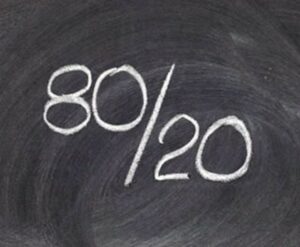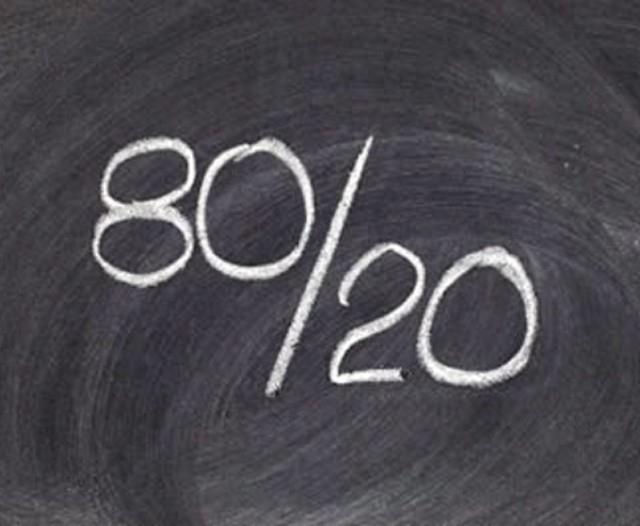
The Pareto Principle, named after an Italian economist-sociologist, Alfredo Pareto, states that the significant items in a given group normally constitute a relatively small portion of the total items in the group. The ratio that holds true in most cases is 80:20. For example, 20 percent of the promotion techniques you use achieve 80 percent of the results, 20 percent of the items in inventory account for 80 percent of the total inventory cost, and so on.
Knowing these ratios does nothing to increase business. But taking action will. See where this principle applies in your business and then see what you can do to take advantage of these facts. If you are in a retail business or managing a pharmacy or whatever, here are a few examples.
If 80 percent of the traffic takes place during 20 percent of the day, identify this time period and declare it sales time. Have additional staff during this time if necessary. Make sure everyone devotes as much time as possible to customer service and selling. Tell your staff not to work on administrative tasks or take coffee breaks during that time period. They can do the maintenance and administration tasks during off-peak times.
If 80 percent of the sales seem to be generated by 20 percent of the staff, train all employees on the basics of up selling and customer service as well as product knowledge. And make sure those staff members who interact well with customers are not hidden away in the back room. Recognize their performance. Provide additional training. A 10% increase in their performance will make a greater impact on the bottom line than a 10% increase in the performance of your least productive employees.
If about 80 percent of the shoplifting occurs in 20 percent of the available hours, security should be concentrated during these peak hours. And you should be well staffed. There is a correlation between shoplifting and customer service so interaction with customers should be greatest during this time period as well.
If 80 percent of the sales come from 20 percent of the store’s traffic, figure out how to get even more sales out of those existing customers. According to some marketing experts it costs five to ten times as much to find a new customer as it does to retain an existing one. And since regular customers buy more, make more referrals and are less price-sensitive, it would pay to get to know your customers. It would also be wise to see how you can get more traffic into the store and keep them there longer, since sales varies with the length of time spent in the store. You could also attempt to convert some of those 80 percent browsers into customers.
If 80 percent of your sales take place during 20 percent of the year, you must maximize the use of this prime selling time to generate as many sales as possible. But you should also try to convert lower sales months to higher sales periods.
The Pareto Principle could apply to the names on your promotion list, the source of shrinkage, customer complaints, returns, and staff lateness as well as other areas. When you spot a Pareto Principle ratio, take action.


Recent Comments